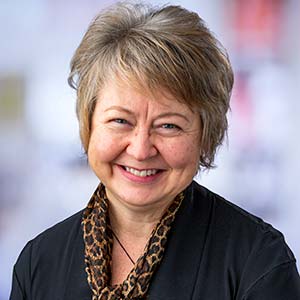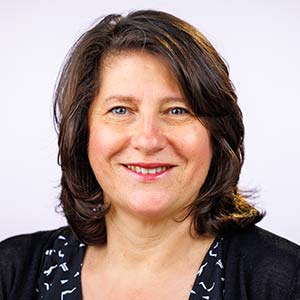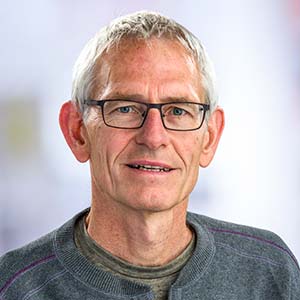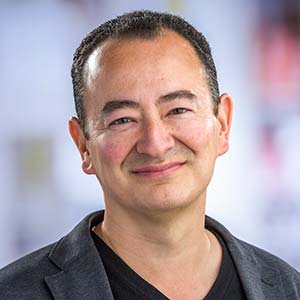From statistical support to study management and specimen banking to data analysis, COMPASS is comprised of a robust team at Fred Hutch Cancer Center.
ON THIS PAGE
What We Do | Mission Statement | Vision | Core Values | Management Team | Scientific Board of Directors
COMPASS is made up of seven distinct specialties:
Grants and Contracts
- Budget development and management
- Grant development and management
- Human subjects’ compliance and monitoring
Statistical Support
- Statistical design
- Statistical analysis
- Development of statistical methods
Study Management and Coordination
- Protocol development and coordination
- Project development
- Project management and monitoring
- Facilitate team meetings
- Provide communications systems
- Manual and form development
- Governance documentation
- Support for publications and presentations
- Development and hosting of custom web-based study administration, data collection, and reporting tools
- Data management and quality control
- Regulatory guidance and support
- Development of SOPs
- Data Safety and Monitoring Committee (DSMC) support
Field Activities and Study Monitoring
- Field site setup, training, support, and monitoring, including site visits
- Participant recruitment and retention strategies
- Participant follow-up (in-person, telephone, mail) and tracking
Endpoint/Outcome Activities
- Medical records abstraction
- Review and adjudication procedures
- ICD-9 and ICD-10 coding
- Other coding as needed per research protocol
Specimen Banking
- SOP creation
- Storage and maintenance
- Tracking and information management systems
- Quality assurance methods
Data Harmonization and Common Data Elements
- Develop and curate data elements with accompanying metadata and data dictionaries
- Harmonize data from disparate sources and document the harmonization process
- Produce annotated, standardized data sets for analysis
COMPASS promotes scientific excellence in research aimed at eliminating cancer and other diseases of public health importance by providing state-of-the-art study coordination, communication, and statistical analysis to scientific investigators.
We do this by:
- offering a strong foundation for health research studies by providing study coordination, robust and secure informatics, data management, and statistical services to scientific investigators
- specializing in multi-site trials, observational studies, and large research consortia
- coordinating large scale multi-site trials which strive to address current public health issues by answering scientific questions utilizing highly experienced staff who focus on innovative, ethical, and high-quality research methods
- facilitating multi- and trans-disciplinary scientific collaborations between diverse scientific groups using accumulated experience in study/group management and informatics infrastructure
Our vision is a world where cancer and other diseases of public health importance have been eradicated through prevention, early detection and treatments validated through well-supported, innovative research.
COMPASS is committed to:
- Advancing scientific excellence and innovation in the conduct of research studies
- Advancing the practice of coordinating large, multiple-site research programs and sharing this knowledge broadly
- Maintaining a dynamic organizational structure capable of sustaining:
- several large, multiple-site studies, and
- a robust software development effort that will enhance compatibility across disparate data sets, specimen management, and increase the efficiency of research study management
- Promoting mutual respect, teamwork, and open sharing of ideas among those in public, private and governmental sectors
- Attracting and retaining the highest quality faculty, management, and staff
- Providing opportunities for growth and advancement of staff
Jackie Dahlgren
Jackie Dahlgren is the COMPASS co-director. Dahlgren has been in research management for over 30 years. She shares primary responsibility in leading COMPASS to achieve its mission in a manner that assures the organization’s stability and continuity and that promotes its Core Values. As the COMPASS co-director, Dahlgren works in direct collaboration with the COMPASS director and all investigators who have projects within COMPASS. Additionally, she has primary responsibility for all services that support COMPASS scientific work, and acts on behalf of the director in her absence. Dahlgren also serves as the project director for the Early Detection Research Network’s (EDRN) Data Management and Coordinating Center (DMCC), one of COMPASS's main projects. In this role, her primary responsibility is to manage the day-to-day operations of the DMCC which include network-coordination, data management, data quality, protocol development, site monitoring and overall coordination for large scale multi-center research studies. To successfully complete these tasks, Dahlgren utilizes COMPASS's IT services. In this role she collaborates with EDRN investigators around the world to further the development of specimen reference sets and coordination of multiple validation studies and clinical utility trials. She is also the project director for the Liquid Biopsy Consortium (LBC), Early Detection Initiative (EDI) and New Onset Diabetes (NOD).
Stephanie Page-Lester
Stephanie Page-Lester is the project manager for the Translational Liver Cancer Consortium (TLC) and the project manager for the Prostate Active Surveillance Study (PASS). In addition, she serves in a coordination role for various Early Detection Research Network (EDRN) studies. Page-Lester has over 20 years of project coordination/management experience. She oversees all aspects of the TLC, including network coordination, website management, governance documentation, facilitation of working groups and scientific meetings. In her role as project manager for PASS, she works on a daily basis with research coordinators using the Validation Study Information Management System (VSIMS) to ensure proper study data entry and participant eligibility and collaborates closely with the study sponsor, the Canary Foundation. She also oversees the protocol and manual of operations and procedures (MOP). Prior to joining Fred Hutch and COMPASS in 2005, Page-Lester worked as a research assistant conducting GLP-regulated studies for a biotechnology firm.
Suzanna Reid, PhD
Suzanna Reid is the COMPASS IT project manager and is a member of the COMPASS Scientific Leadership Team. Dr. Reid’s formal education and background is in basic research (BS in biochemistry; PhD in immunology; post doctoral research in hematology) but left research to pursue interests in IT and IT project management with the intent of incorporating the additional IT skill set back into basic research. The COMPASS IT project manager serves as a liaison between clients (internal and external) and COMPASS IT staff. Dr. Reid supervises COMPASS IT staff and processes to evaluate client IT needs for research work (develop statement of work and staffing levels for grants) as well as performing oversight of the software development life cycle to ensure delivery of quality IT applications that assist with data capture and management pertaining to scientific research.
Lesley Wilkerson, MPA
Lesley Wilkerson is the research administrator for COMPASS. She has over 20 years of experience in research fiscal management and has worked as a research administrator at Fred Hutch since 2019. Wilkerson is responsible for the fiscal oversight of all projects that COMPASS is involved in. She works closely with the COMPASS co-director and other collaborators to identify areas of opportunity, develop appropriate fiscal plans and manage the fiscal and administrative aspects of the scientific work.

Garnet Anderson, PhD
Dr. Garnet Anderson is a biostatistician and clinical trialist who focuses on chronic disease prevention and women's health. She is best known for her leadership role in the Women’s Health Initiative, a national effort to test methods to reduce the risk of cancer, cardiovascular disease and fractures related to osteoporosis in postmenopausal women.

Ruth Etzioni, PhD
Dr. Ruth Etzioni is a biostatistician who primarily focuses on cancer screening and early detection. Much of her work is in the area of prostate and breast cancer, where she develops methods for evaluating diagnostic tests; creates mathematical models to reflect the impact of screening tests on the incidence and mortality rates of these cancers; calculates costs and benefits of preventive screening; tracks population trends with regard to screening and related behaviors and works with investigators on trial design and analysis.

Ziding Feng, PhD
Dr. Ziding Feng is a biometrics expert who applies statistical analysis to biological data. Much of his research is focused on biomarker evaluation for cancer risk assessment, early detection, diagnosis and prognosis. He is the principal investigator of the Data Management and Coordinating Center for the National Cancer Institute-funded Early Detection Research Network, or EDRN, a multicenter research collaboration that focuses on biomarker discovery and validation.

Michael LeBlanc, PhD
Dr. Michael LeBlanc is a biostatistician and director of the SWOG Cancer Research Network Statistics & Data Management Center. SWOG has approximately 100 trials either in design and development, active accrual or analysis stages at any given time. Dr. LeBlanc has extensive experience and research expertise in the design and analysis of clinical trials.

Christopher Li, MD, PhD
Dr. Christopher Li is an epidemiologist who specializes in identifying breast cancer risk factors. He has helped detect important connections between breast cancer and lifestyle factors such as obesity, physical activity, and consuming alcohol and certain medications. He also investigates the causes of disparities in cancer outcomes and is at the forefront of efforts to ensure cancer research benefits all patients, regardless of race, ethnicity, age, gender, income, education or geography.